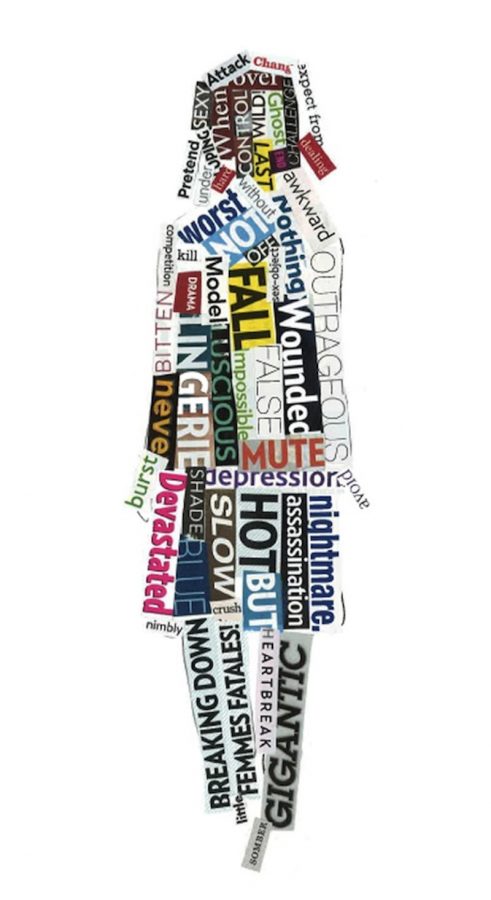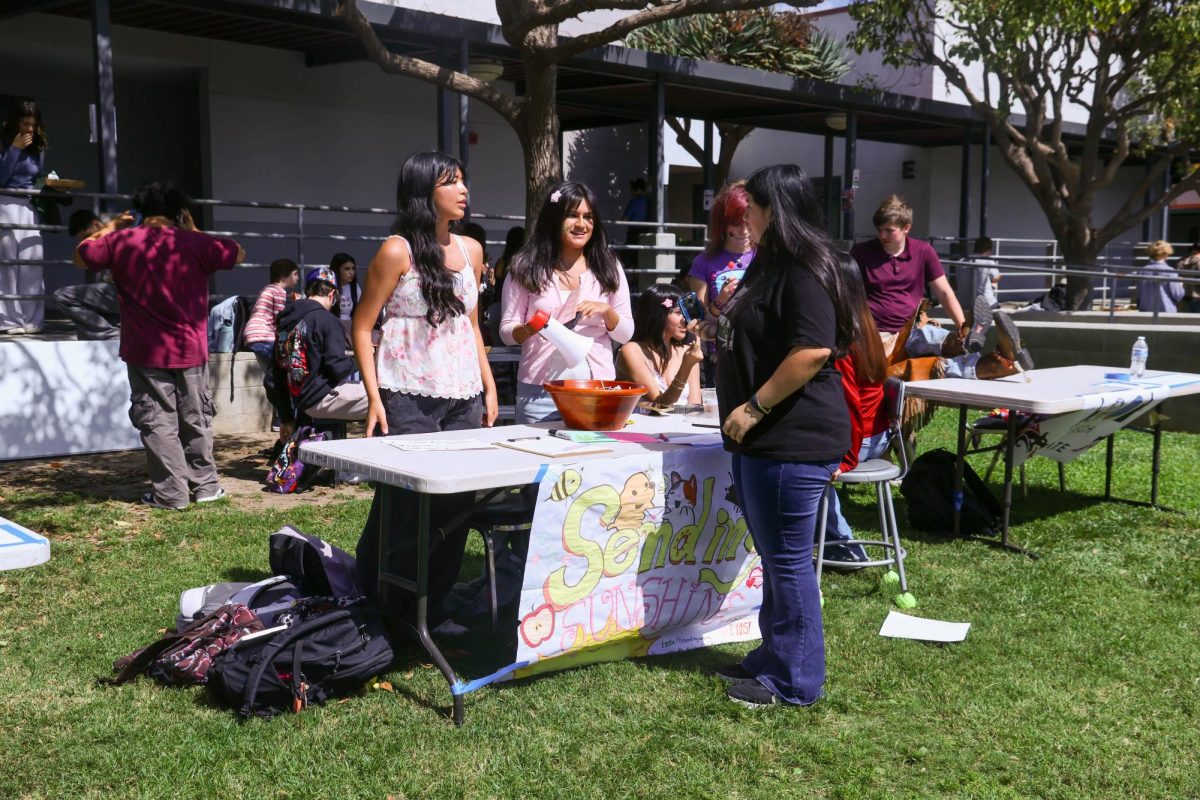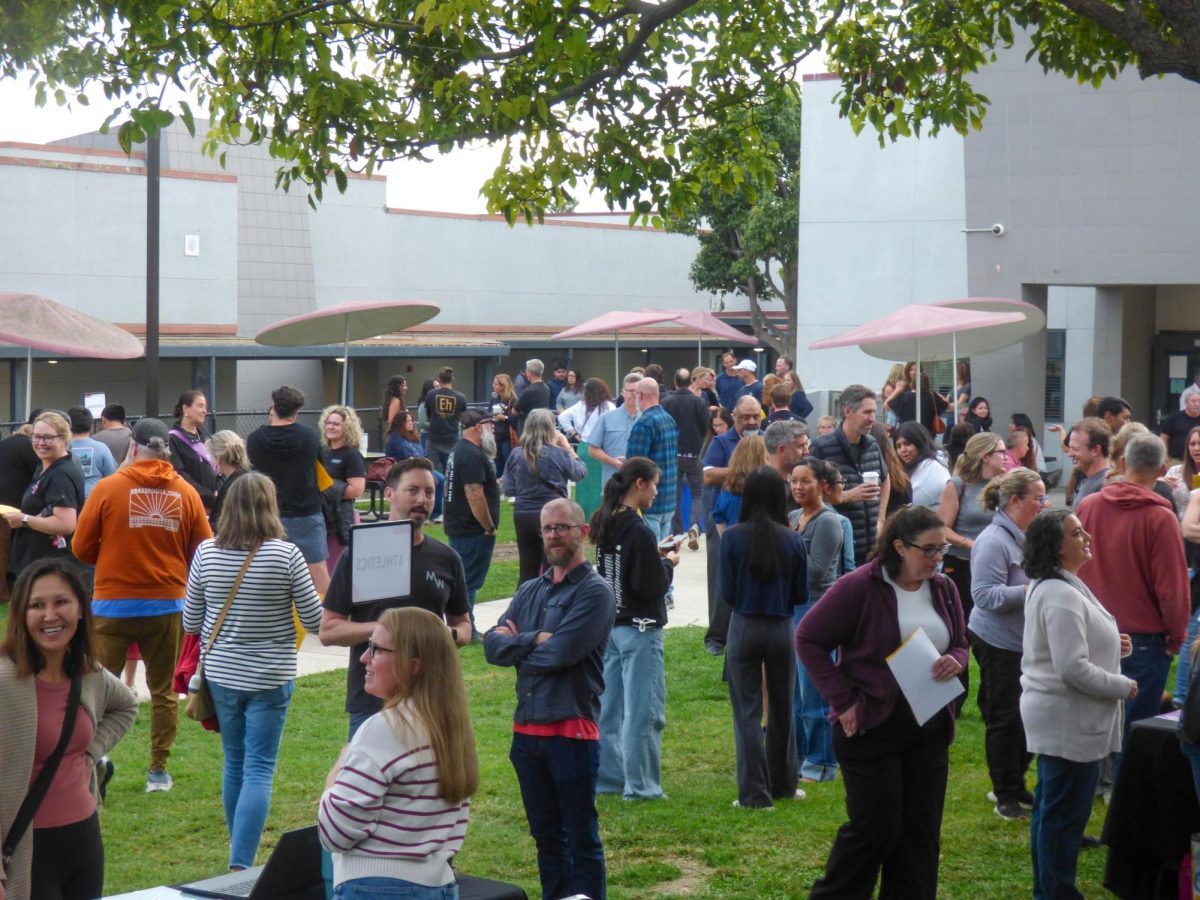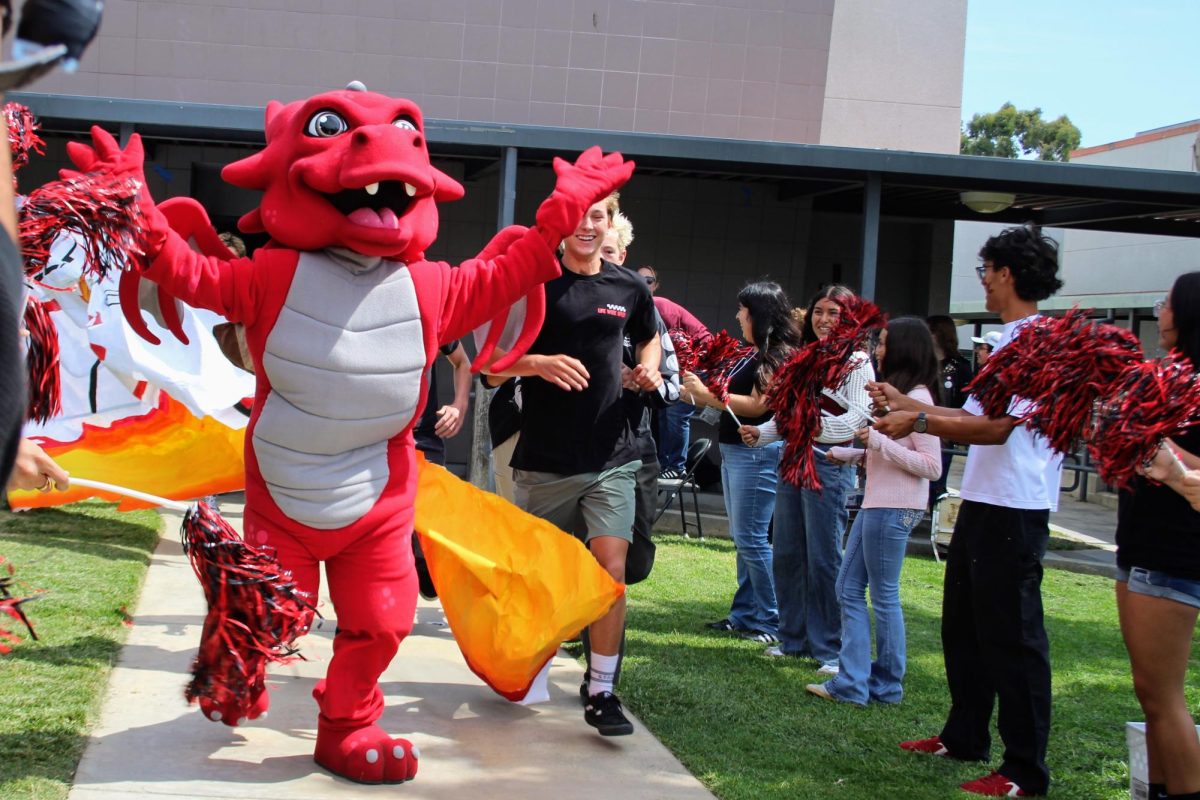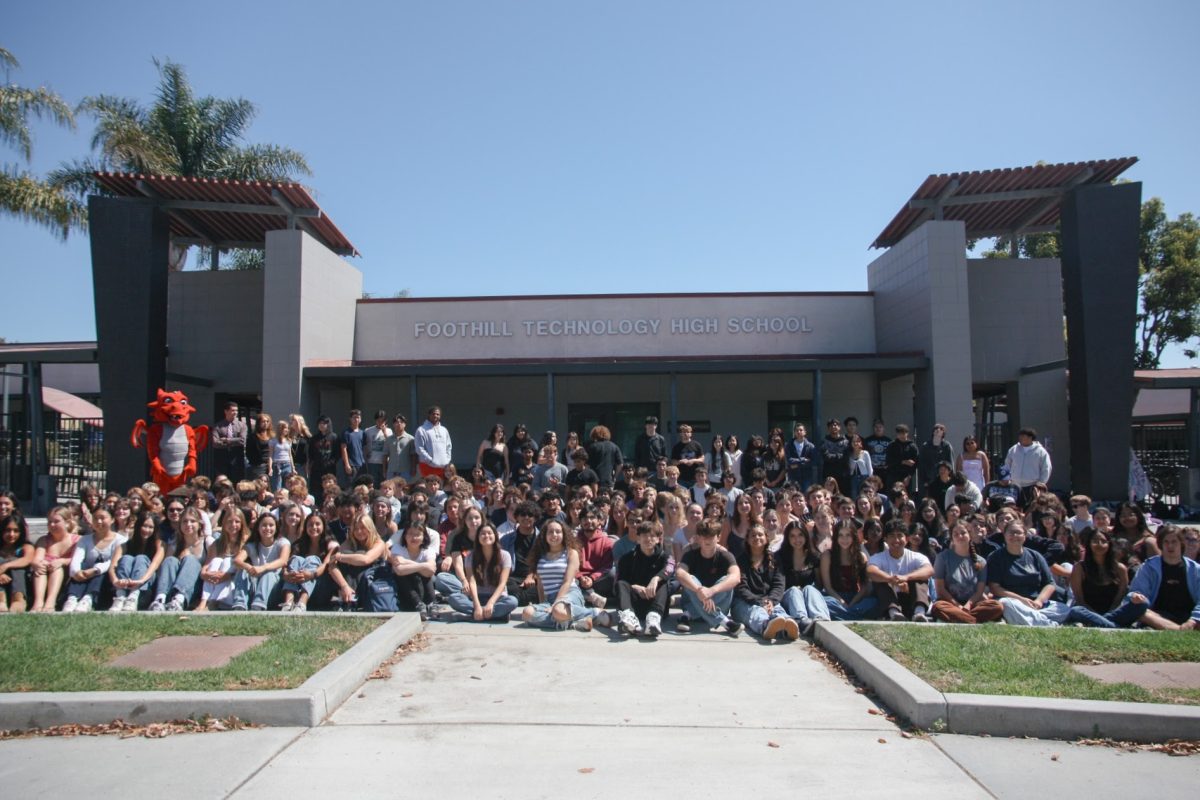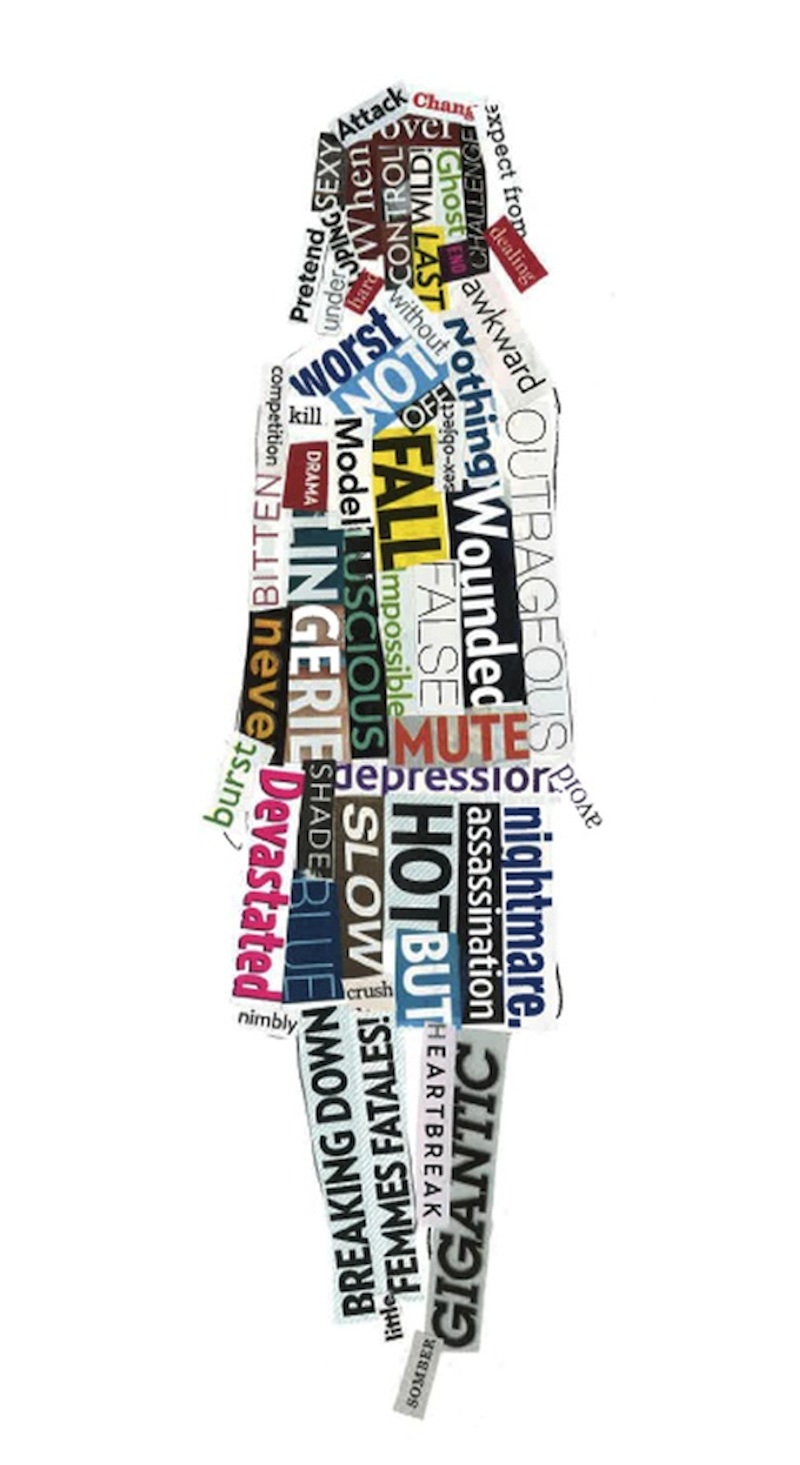
An informal survey of 147 Foothill students last week has found that 57 percent report being sexually harassed in the past school year, a figure nearly 10 percent higher than the national average of 48 percent.
“That is pretty shocking for me to hear,” counselor Debbie Freeman said. “I felt that this campus was a much safer campus on both the social and professional level.”
The voluntary, anonymous survey conducted last week by The Foothill Dragon Press dealt with sexual harassment both on and off campus. The questions were given to psychology and drama classes on Nov. 9 and 10.
Seventy-seven seniors, 55 juniors, and 15 sophomores responded. Freshmen responses were not included because they did not attend Foothill last year.
Questions given to Foothill students were identical to those on the American Association of University Women’s national survey of 1,965 middle and high school students, released earlier this month. Those results, as reported by the New York Times, show “pervasive” levels of sexual harassment among teens.
Foothill’s survey, similar to the national results released by the AAUW in a report titled “Crossing the Line,” found that more girls than boys are being sexually harassed.
Foothill’s girls more likely to be harassed
Of the Foothill girls responding, 67 percent indicate that they have been victims of harassment, versus 46 percent of boys.
Nationally, the numbers are 56 and 40 percent, respectively.
Additionally, about 70 percent of 10th grade girls at Foothill report harassment, making them the most victimized group. At 49 percent, 12th grade boys are the least likely to be harassed.
Results also show:
- 21 percent were harassed in person more than once
- 20 percent saw others harassed more than once
- 17 percent were harassed online more than once
- 14 percent were called gay or lesbian as an insult more than once
- 9 percent saw someone expose themselves more than once
- 7 percent were shown sexual photos they didn’t want to see more than once
- 7 percent were touched in an unwelcome way more than once
- 7 percent were sexually intimidated more than once
Most girls answered that “insecure” students had a higher risk of being harassed, but most boys felt that homosexuals were more likely to be victimized.
One 12th grade boy wrote in the survey, “the gay kids who exaggerate how gay they are and are overly flamboyant and are more physical with each other than straight couples.”
He also wrote that schools cannot do anything to prevent harassment.
“It’s not even the school’s job to stop it. I read an article a while ago where teachers advised the kids to ‘act less gay.’ Seems like the best solution to me,” he wrote.
Junior Ellen Mohler disagrees, saying that it is the school’s job to stop harassment.
“With harassment of any kind going on, it can provide neither a safe learning environment or a safe social environment for any student, even those who are not being harassed,” Mohler said.
More confident students least likely to be victimized
Both genders feel that “confident” students are the least likely to be victimized. They also agreed that the reason students harass others is because they “have issues” ranging from insecurities to emotional problems.
When asked what schools can do to help prevent harassment, most students responded with “nothing,” which English teacher Melanie “Captain” Lindsey finds upsetting.
“I find the answer ‘nothing’ so disturbing because there is so much we can do,” said Lindsey, who helped administer the survey.
She was disappointed that so many students felt victimized.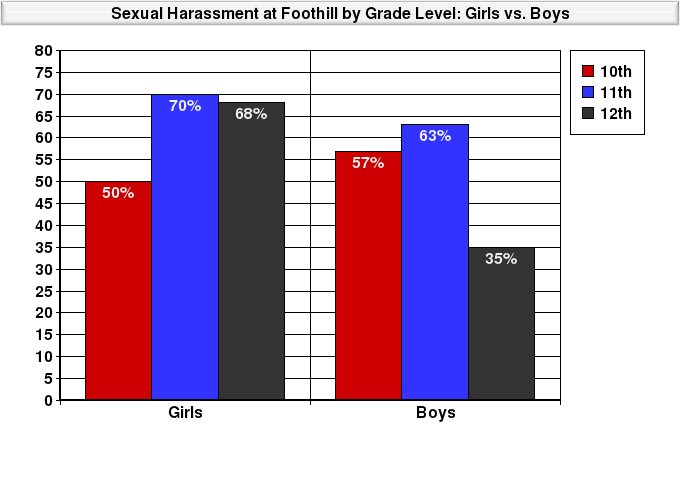
“I hope that this will open up an opportunity for those who are suffering from harassment to know that there are adults on this campus who are saddened and want to help, and I hope they take us up on it,” she said.
Though Foothill has three full-time counselors, it does not offer any support groups for sexual harassment.
“We counsel on an individual level now,” said Freeman, who mentioned that Foothill has had support groups in the past. “We will hopefully give them the confidence to tell their parents so that they can get continued, expert help.”
Freeman believes that the number of sexual harassment cases at Foothill has decreased over the years.
Principal Joe Bova agrees, saying that Foothill’s administration deals with only a handful of cases every year that require disciplinary action, such as suspension or expulsion.
“I think that the level of harassment here is a lot lower than most high schools,” he said. “I think students here are, for the most part, more aware about these issues than other schools,” said Bova.
For most incidents, Foothill’s administration reminds harassers about acceptable behavior before having the harasser and victim talk.
According to Bova, an off-hand joke or comment that ends up offending someone is what often causes these cases.
“It’s called joking.”
However, some don’t believe that these comments should count as harassment.
“It’s called joking,” one 11th grade boy wrote in the survey. “If you can’t understand or comprehend, we are not serious.”
Another 11th grade boy agreed, stating, “Most of the time, it isn’t harassment, it’s just messing around. Sometimes though, people just do things that cross the line.”
Some teachers are concerned about this attitude.
“I think guys specifically need to understand that girls are very insecure about their bodies at this age, and they need to be sensitive to that,” Lindsey said.
English teacher Karen Rodriguez believes the school has a responsibility to educate students about what is appropriate.
“If a cute boy is harassing a girl, it is still harassment,” said Rodriguez.
Some students surveyed suggested schools raise awareness through assemblies or guest speakers.
After overhearing several inappropriate comments in her classroom last year, Rodriguez said she attempted to find guest speakers to help educate Foothill’s student body about the negative effects of intolerance. However, she said that she was encouraged by administration to address her concerns on her own and not engage the entire school.
Bova said one reason that Rodriguez’s suggestions were not implemented is that an assembly on bullying last year was ineffective.
Associated Student Body (ASB) advisor Darcy Duffy agreed, saying that the interactive movie that Foothill showed ninth and tenth graders last year was aimed at middle-schoolers.{sidebar id=39}
“It might have been too immature for our ninth and tenth graders,” Duffy said.
Sophomore Ana Bello, a member of Foothill’s ASB, saw the film last year and also felt it wasn’t appropriate for high school.
“For a freshman audience, they weren’t taking it as seriously as they should be,” Bello said.
ASB does not currently have any plans to address the topic of harassment this year. However, Duffy said that they’re “always open to positive ways to impact students.”
Lindsey, who also teaches psychology, believes that the prevalence of sexual harassment is a reflection of modern-day society.
One student surveyed agrees.
“Schools can’t do a lot. The media and those influenced by it, as well as society as a whole, needs to become more tolerant and welcoming of those who are different,” the 11th grade boy wrote.
One 12th grade girl feels that harassment is “part of growing up, but in extreme situations, a school administrator should get involved. Also, kids need to take charge into their own hands and realize people can’t read their minds.”
“If they need help, they should seek it out,” she wrote.
Bova agrees.
“We only know if the victim comes forward,” he said.
Some students don’t feel that sexual harassment is a problem at Foothill.
“I think Foothill is a great environment for students,” said Marnie Vaughan, who transferred to Foothill this year from La Reina, a Catholic girls school and said she has not felt harassed on campus.
A 12th grade boy wrote on the survey, “I don’t think it’s that big of an issue that is prevalent in high school.”
Students can find Foothill’s sexual harassment policy in the agendas for sale at the student store, and Ventura Unified’s policy can be found online.
“More than anything, we want to make sure that every student feels safe and wants to come to school everyday,” said Freeman.


